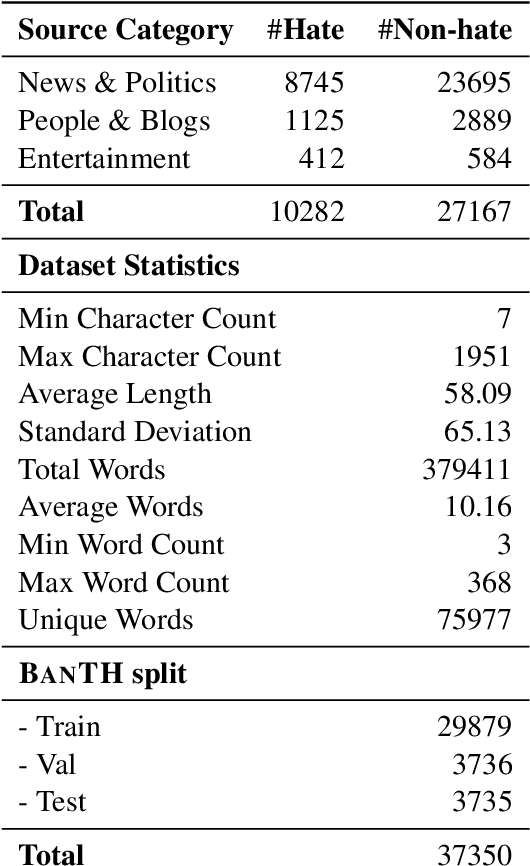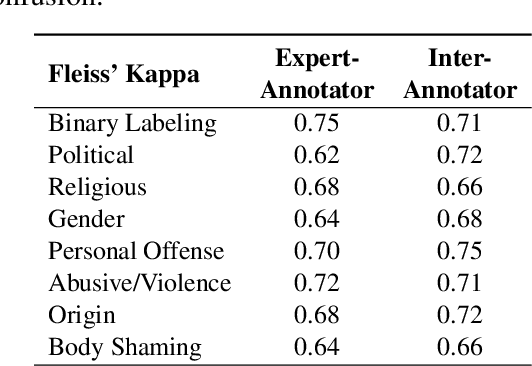BANTH: A Multi-label Hate Speech Detection Dataset for Transliterated Bangla
Paper and Code
Oct 17, 2024



The proliferation of transliterated texts in digital spaces has emphasized the need for detecting and classifying hate speech in languages beyond English, particularly in low-resource languages. As online discourse can perpetuate discrimination based on target groups, e.g. gender, religion, and origin, multi-label classification of hateful content can help in comprehending hate motivation and enhance content moderation. While previous efforts have focused on monolingual or binary hate classification tasks, no work has yet addressed the challenge of multi-label hate speech classification in transliterated Bangla. We introduce BanTH, the first multi-label transliterated Bangla hate speech dataset comprising 37.3k samples. The samples are sourced from YouTube comments, where each instance is labeled with one or more target groups, reflecting the regional demographic. We establish novel transformer encoder-based baselines by further pre-training on transliterated Bangla corpus. We also propose a novel translation-based LLM prompting strategy for transliterated text. Experiments reveal that our further pre-trained encoders are achieving state-of-the-art performance on the BanTH dataset, while our translation-based prompting outperforms other strategies in the zero-shot setting. The introduction of BanTH not only fills a critical gap in hate speech research for Bangla but also sets the stage for future exploration into code-mixed and multi-label classification challenges in underrepresented languages.
 Add to Chrome
Add to Chrome Add to Firefox
Add to Firefox Add to Edge
Add to Edge